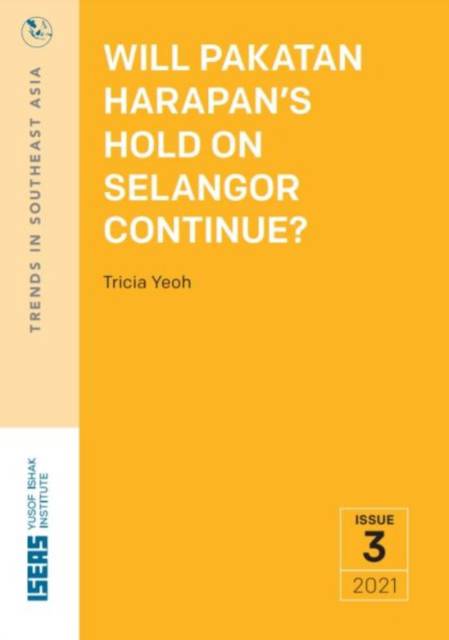
- Afhalen na 1 uur in een winkel met voorraad
- Gratis thuislevering in België vanaf € 30
- Ruim aanbod met 7 miljoen producten
- Afhalen na 1 uur in een winkel met voorraad
- Gratis thuislevering in België vanaf € 30
- Ruim aanbod met 7 miljoen producten
Zoeken
Omschrijving
When the Pakatan Harapan (PH) federal government fell in February 2020, PH also lost control over the states of Johor, Malacca, Perak and Kedah. In Sabah, PH-aligned Warisan was replaced by the PN-aligned United Alliance of Sabah.
PH maintained its hold on three states--Selangor, Penang and Negeri Sembilan. Selangor's position is of unique interest, given the largest share of PH assemblypersons comprising members from the People's Justice Party (Parti Keadilan Rakyat, or PKR), the party which has faced significant elite splits in 2020. The present stability of PH's survival in Selangor can be accounted for by the sheer majority it possesses within the legislative assembly, comprising forty-one out of fifty-six state seats. Unless a significant share of assemblypersons were to defect, the change in state government would be highly unlikely. PH built a strong base in Selangor during its time in power over more than a decade, securing performative legitimacy and rooting itself strongly within the community. PH has benefited from the highly urbanized and educated demographic profile of Selangor. However, the economic fallout from the COVID-19 pandemic has likely changed the landscape, which may in turn affect how constituents will now respond to goodies offered by the federal government. Although PH in Selangor has survived the national storm, its future performance remains uncertain. This year's political realignment, public opinion towards PN and the 2018 redelineation exercise where the number of Malay-majority seats has grown may hamper PH's ability to maintain its strong margin. The political fragmentation that continues to unfold will see further party and coalitional realignment, which will invariably impact PH's strength in Selangor.Specificaties
Betrokkenen
- Auteur(s):
- Uitgeverij:
Inhoud
- Aantal bladzijden:
- 56
- Taal:
- Engels
- Reeks:
Eigenschappen
- Productcode (EAN):
- 9789814951432
- Verschijningsdatum:
- 31/01/2021
- Uitvoering:
- Paperback
- Formaat:
- Trade paperback (VS)
- Afmetingen:
- 146 mm x 222 mm
- Gewicht:
- 108 g

Alleen bij Standaard Boekhandel
+ 19 punten op je klantenkaart van Standaard Boekhandel
Beoordelingen
We publiceren alleen reviews die voldoen aan de voorwaarden voor reviews. Bekijk onze voorwaarden voor reviews.











